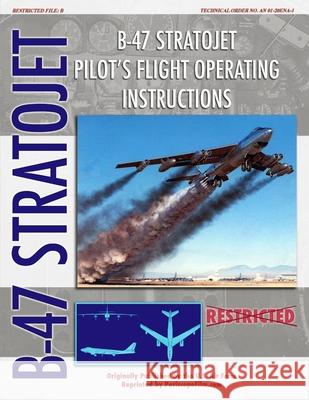B-47 Stratojet Pilot's Flight Operating Instructions » książka
B-47 Stratojet Pilot's Flight Operating Instructions
ISBN-13: 9781435705548 / Angielski / Miękka / 2007 / 104 str.
The Air Force's first all-jet strategic bomber, the swept-wing Boeing B-47 Stratojet had a range of 3,500 nautical miles and a payload capacity of 20,000 pounds. It served as the mainstay of Strategic Air Command in the 1950s into the mid 1960s. The B-47 was an outgrowth of WWII research and development efforts, and the prototype aircraft first flew in December of 1947. The unique six-jet design featured twin engine pods on the wing near the fuselage, and one outboard. It also incorporated an elegant bicycle-type landing gear with two-wheel struts on the forward and aft fuselage and outrigger wheels. In 1956, over 1300 B-47s and 250 RB-47s were on alert. It was the high water mark for the aircraft, which was fully supplanted by the B-52 by 1967. This B-47 pilot's flight operating handbook was originally produced by the USAF. It has been slightly reformatted but is reproduced here in its entirety. It provides a fascinating view inside the cockpit of one of history's great planes.
The Air Forces first all-jet strategic bomber, the swept-wing Boeing B-47 Stratojet had a range of 3,500 nautical miles and a payload capacity of 20,000 pounds. It served as the mainstay of Strategic Air Command in the 1950s into the mid 1960s. The B-47 was an outgrowth of WWII research and development efforts, and the prototype aircraft first flew in December of 1947. The unique six-jet design featured twin engine pods on the wing near the fuselage, and one outboard. It also incorporated an elegant bicycle-type landing gear with two-wheel struts on the forward and aft fuselage and outrigger wheels. In 1956, over 1300 B-47s and 250 RB-47s were on alert. It was the high water mark for the aircraft, which was fully supplanted by the B-52 by 1967. This B-47 pilots flight operating handbook was originally produced by the USAF. It has been slightly reformatted but is reproduced here in its entirety. It provides a fascinating view inside the cockpit of one of historys great planes.











